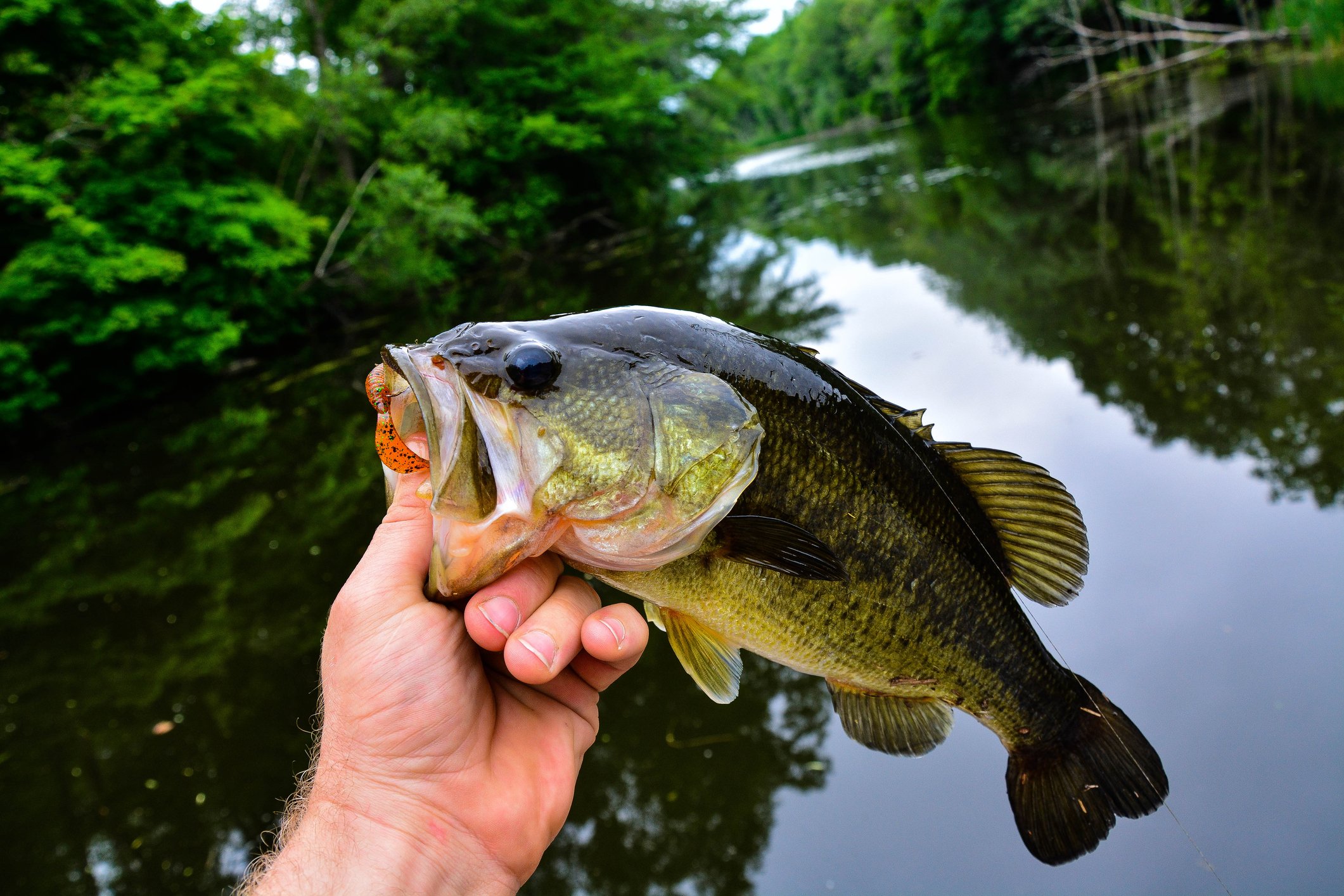Bass Pro Shops recently negotiated a new, lower price ($61.50 per share) to acquire Cabela's (CAB +0.00%), but with sales falling and profits plummeting at Cabela's, the sporting goods store may want to demand an even better price still.
There are a lot of moving parts to Cabela's operations, and very few seem to be working well. Bass Pro Shops will have a long road ahead of it to turn the chain around if it ultimately proves successful in acquiring the chain, something that is by no means certain.

Image source: Getty Images.
Hook, line, and sinker
Cabela's originally agreed last October to be bought for $65.50 per share, or about $5.5 billion, including debt. That represented a 19% premium to Cabela's closing price on Sept. 30, the day before the acquisition was announced, and a 40% premium to its December 2015 closing price, when Cabela's announced it was exploring strategic alternatives. It was also almost double the price it traded at the previous October, just before activist investor Elliott Management disclosed it had taken a sizable 11% stake in the retailer with the intent to push management to sell the company.
There was also a side deal Cabela's had to sell its World's Foremost Bank credit card business to Capital One Finance (COF 0.17%) in a separate transaction worth $200 million, and it didn't take long for the whole thing to run into trouble.
First, the Federal Trade Commission requested additional information about the deal from both Cabela's and Bass Pro Shops via a "second request," which typically means the regulatory agency has concerns about the merger, and while not an always fatal development, it has killed more than one deal on occasion.
Despite them being two of the largest national sporting goods stores that operate with a similar format, there's no real overlap in territory covered. Cabela's tends to be stronger in the Northwest while Bass Pro Shops is more prevalent in the Southeast. Yet with the demise of numerous sporting goods chains over the past few years, including Eastern Mountain Sports, Sports Authority, and most recently Gander Mountain, a further concentration of the industry into the hands of one company was bound to get closer scrutiny.

Image source: Getty Images.
Then Cabela's ran into a problem with Capital One, which hit a roadblock in acquiring the retailer's credit card division. Capital One is operating under a consent order from the Comptroller of the Currency because of money laundering laws it violated a few years ago from a check-cashing business it once operated, and it announced it didn't think would be able to get the necessary regulatory approvals in time.
Not able to set the hook
What many analysts had originally thought of as a smart acquisition for Bass Pro Shops suddenly looked like it was going to fall apart. However, last month, the two retailers announced they had negotiated a new offering price, with Bass Pro agreeing to pay Cabela's $61.50 per share, or $5 billion, including debt. In addition, instead of Capital One taking over the credit card business, Synovus Financial (SNV +0.00%) would purchase it, and then sell the credit card assets and related liabilities to Capital One while keeping the bank's deposits for itself.
That seemed to breathe new life back into the transaction as it indicated all of the parties were still committed to seeing it through, but then Cabela's reported its earnings, and even though it's done its due diligence, Bass Pro Shops has to wonder if it isn't still paying too much.
Sales at Cabela's fell 3.4% to $835 million in the most recent quarter, with same-store sales tumbling 8.9% from last year. In the U.S., comps were even worse, falling 9.1% as firearms and ammunition sales eased back after the presidential election. Gun sales in the year-ago period had been elevated because of the December 2015 mass shooting in San Bernardino, Calif., but with no comparable tragedy to fuel fears of increased gun control, plus the election of a presumably pro-gun president and Congress, gun sales are running below 2016's record-setting pace.

Image source: Cabela's.
Falling down everywhere
Still, that's not enough to explain away Cabela's poor performance, which saw even its internet and catalog sales plunge nearly 13% year over year. While many brick-and-mortar retailers are reeling from consumers increasingly buying products online, they've been able to offset some of that decline with greater sales from their own e-commerce platforms. Some retailers are going so far as to shut down their physical locations and become online-only stores.
Cabela's can't even do that, and it's finding it has to engage in substantial discounting to get customers in the door, which in turn affects margins. The sporting goods outfit said merchandise gross margins fell 80 basis points to 31.4% as a result of its promotional activity.
The one area where things improved was in its cost-cutting initiatives. Cabela's was able to save money on labor and marketing expenses, indicating it wasn't advertising as much as it did previously.
Bass Pro Shops should be worried about just how damaged Cabela's is, particularly if it can't even sell goods online. While gun sales overall are still running well ahead of 2015's totals, suggesting there could be hope for Cabela's on the horizon, Bass Pro may want to start thinking about lowering its purchase price to account for the diminished capacity Cabela's current operations exhibit.






